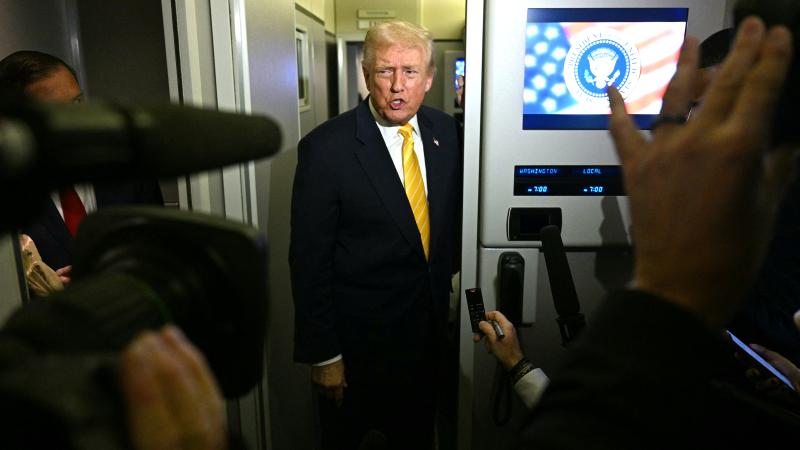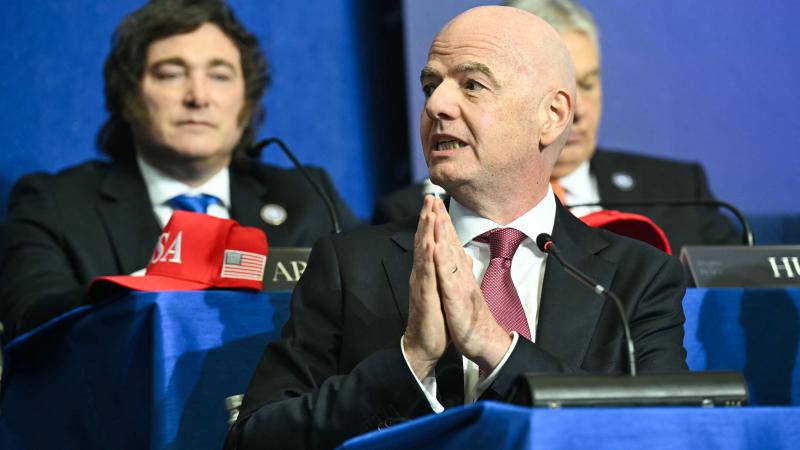Mar-a-Lago case dismissal could spell the end of Smith’s D.C. prosecution, anti-Trump lawfare
While her order was confined to the Mar-a-Lago case, her ruling will have immediate implications for Smith’s election case in Washington, D.C.
After surviving an assassination attempt over the weekend, Trump began the week with good news in the form of Judge Aileen Cannon dismissing special counsel Jack Smith’s Mar-a-Lago case against him in a seismic ruling that could spell the end of his federal legal woes and build on his existing momentum in the national spotlight.
Smith had charged Trump in connection with his storage and retention of materials at his Mar-a-Lago estate, which the FBI raided in August of 2022. Attorney General Merrick Garland appointed Smith in late 2022 to pursue the case and he brought an initial indictment in 2023. Trump pleaded not guilty though Smith in July of that year brought a superseding indictment with additional charges. The former president has long maintained he was innocent of any wrongdoing and that the case was part of a broader political witch hunt designed to derail his 2024 bid for the White House.
Cannon’s reasoning
Cannon on Monday dismissed the superseding indictment, asserting that Smith’s appointment violated the Appointments Clause of the Constitution.
“Upon careful study of the foundational challenges raised in the Motion, the Court is convinced that Special Counsel’s Smith’s prosecution of this action breaches two structural cornerstones of our constitutional scheme—the role of Congress in the appointment of constitutional officers, and the role of Congress in authorizing expenditures by law,” Cannon wrote.
“The Framers gave Congress a pivotal role in the appointment of principal and inferior officers,” she went on. “That role cannot be usurped by the Executive Branch or diffused elsewhere—whether in this case or in another case, whether in times of heightened national need or not. In the case of inferior officers, that means that Congress is empowered to decide if it wishes to vest appointment power in a Head of Department, and indeed, Congress has proven itself quite capable of doing so in many other statutory contexts.”
“But it plainly did not do so here, despite the Special Counsel’s strained statutory readings,” Cannon insisted.
Effects on the D.C. case
While her order was confined to the Mar-a-Lago case, her ruling will have immediate implications for Smith’s election case in Washington, D.C. Smith charged Trump with four counts in that case related to the Jan. 6 capitol riot, including conspiracy to defraud, conspiracy to obstruct an official proceeding, obstruction of, and attempt to obstruct an official proceeding, and conspiracy against rights.
The case has been the subject of dispute over Trump’s claims to enjoy presidential immunity, which resulted in an early July Supreme Court decision determining that the president enjoys absolute immunity for constitutional acts and presumed immunity for official acts. Whether Trump’s conduct prompting the charges classifies as an official act remains the subject of dispute.
But Cannon’s ruling likely offers Trump another avenue to seek the case’s dismissal, as it addressed the merits of Smith’s appointment rather than those of the case. Her decision, moreover, referenced a concurring opinion from Associate Justice Clarence Thomas authored in the immunity case, stating ““that lodging the appointment power in the President alone would pose much the same risk as lodging it exclusively in Congress: the risk of an incautious or corrupt nomination.”
Thomas in that opinion raised the question of the legitimacy of Garland’s appointment of Smith to the post.
“In this case, the Attorney General purported to appoint a private citizen as Special Counsel to prosecute a former President on behalf of the United States. But, I am not sure that any office for the Special Counsel has been ‘established by Law,’ as the Constitution requires.”
“Even if the Special Counsel has a valid office, questions remain as to whether the Attorney General filled that office in compliance with the Appointments Clause,” he also wrote.
Moving forward
Trump is almost certain to seize on the Mar-a-Lago ruling to seek to shut down the D.C. election case, which is already on pause. Bolstered by Thomas’s concurrence, the argument could conceivably make its way to the Supreme Court.
Such proceedings would no doubt ensure that the case will not be tried by the November general election and could conceivably end Trump’s criminal legal woes.
The Mar-a-Lago case was widely regarded as the most substantive of Trump’s criminal proceedings. With its dismissal and implications for the election case, Monday’s legal developments could spell the end of federal cases against Trump.
Fulton County District Attorney Fani Willis’s case, meanwhile, is currently on pause. Manhattan District Attorney Alvin Bragg’s case, meanwhile, has concluded with a guilty conviction, though Judge Juan Merchan has postponed Trump’s sentencing until Sept. 18.
Accordingly, few legal developments between now and the election are likely to substantially alter Trump’s legal position or standing. Trump, for his part, called for an end to the legal cases against him in the wake of Cannon’s ruling.
“As we move forward in Uniting our Nation after the horrific events on Saturday, this dismissal of the Lawless Indictment in Florida should be just the first step, followed quickly by the dismissal of ALL the Witch Hunts — The January 6th Hoax in Washington, D.C., the Manhattan D.A.’s Zombie Case, the New York A.G. Scam, Fake Claims about a woman I never met (a decades old photo in a line with her then husband does not count), and the Georgia 'Perfect' Phone Call charges,” he posted on Truth Social.
“The Democrat Justice Department coordinated ALL of these Political Attacks, which are an Election Interference conspiracy against Joe Biden’s Political Opponent, ME,” he went on. “Let us come together to END all Weaponization of our Justice System, and Make America Great Again!”
Ben Whedon is an editor and reporter for Just the News. Follow him on X.















